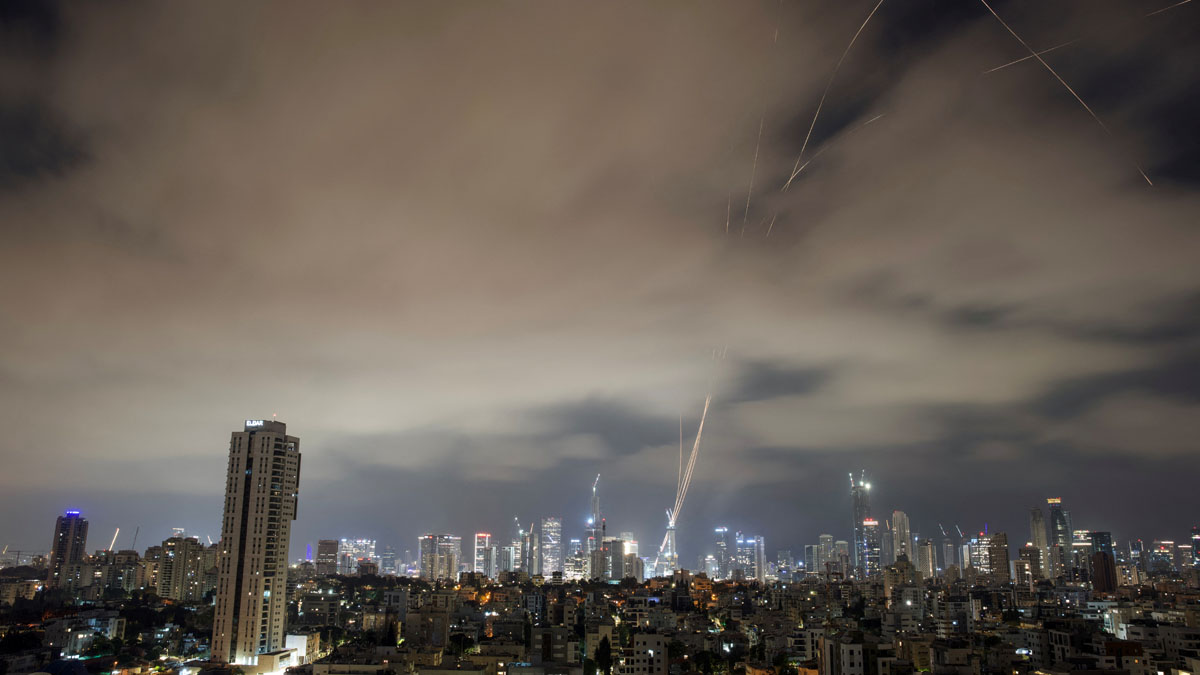At least 3 killed as Iranian missiles strike key Israeli cities; IDF targets defence, energy HQ in Tehran

Iranian missile and drone strikes continued to pound central and northern Israel on Sunday morning, killing at least three people and injuring more than 125 in cities including Bat Yam, Rehovot, Tel Aviv and Jerusalem. According to Israel’s national emergency service, Magen David Adom (MDA), the attacks caused direct hits in densely populated areas, with emergency crews scrambling to rescue people trapped under rubble.
In Bat Yam, an 11-year-old boy and a woman in her 60s were among the dead. Another fatality was reported in Rehovot. At least 125 people were injured, several of them seriously. Earlier, on Saturday, a separate strike on the town of Tamra killed four civilians, including two women in their twenties. Ten others were wounded and multiple residents remain missing under debris.
The Israeli Defence Forces (IDF) reported that ballistic missiles and explosive-laden drones were launched from Iranian territory, prompting air raid sirens across the wider Tel Aviv metropolitan area, the Shfela, Jerusalem, and parts of the Sharon and Samaria regions. Interceptor systems managed to shoot down several incoming threats, while Israeli fighter jets were deployed to engage unmanned aerial vehicles (UAVs) in real time. A missile fired from Yemen triggered additional alarms in central Israel.
In Jerusalem, at least one strike was confirmed by MDA. Emergency instructions from Israel’s Home Front Command urged residents across northern and central regions to remain near protected shelters, limit movement and avoid gatherings during the ongoing missile barrage.
Since the start of hostilities on Friday night, Iran has launched an estimated 200 missiles at Israel, alongside dozens of explosive drones. The Israeli authorities have not released figures on how many missiles were intercepted, citing national security concerns. However, the prime minister’s office confirmed that 17 impact sites have been identified, including Tel Aviv, Ramat Gan, Rishon LeZion and, for the first time, Haifa in northern Israel.
Israel has accused Iran of deliberately targeting civilian areas. Brigadier General Effie Defrin, the IDF’s chief spokesman, acknowledged that while Israel’s air defences were among the most advanced in the world, they were “not hermetic.” The strikes over the weekend have killed at least seven civilians and injured over 200 people, including seven soldiers.
While Iranian missiles have struck urban areas, the extent of damage to military or strategic infrastructure within Israel remains undisclosed. Officials have withheld such information to avoid aiding enemy targeting.
In response, Israel has intensified its aerial campaign against Iranian military and energy targets. The Israeli Air Force has carried out approximately 150 strikes across Iran over the past two days. On Sunday, Israel attacked military sites as well as critical infrastructure in and around Tehran. Iranian state media confirmed new waves of missile attacks from Tehran aimed at Israel in retaliation.
Israel’s strikes have damaged or destroyed several high-value targets, including a key gas storage facility and oil refinery in the Iranian capital. The Shahran fuel depot, located in an affluent residential area, was set ablaze, with explosions lighting up the skyline. Residents reported tremors akin to an earthquake. The fire threatened nearby high-rises as emergency services worked to contain it. Separately, the Shahr Rey oil refinery in southern Tehran was also hit.
Earlier, Israel had bombed sections of the South Pars Gas Field, one of the world’s largest and vital to Iran’s energy exports. Israeli jets also reportedly targeted facilities associated with Iran’s nuclear programme, including experimental laboratories, according to Israeli defence officials.
Tehran’s skyline was filled with smoke on Sunday as Israeli strikes hit several military and energy installations in rapid succession. Brigadier General Defrin claimed the Israeli military had gained “freedom of action” in Iranian airspace, suggesting its aircraft could now operate over Tehran with minimal interference.
Iran has so far lost at least six senior commanders in the Israeli strikes, according to the Iranian Armed Forces. In total, over 70 people have been reported killed in Iran since Friday. The escalating conflict, the most intense direct confrontation between Iran and Israel in decades, has raised fears of a broader regional war that could draw in the United States and other major powers.
Despite international calls for restraint, both sides appear determined to press on. Israeli Prime Minister Benjamin Netanyahu has said Iran’s missiles carry up to a ton of explosives. Military analysts believe Iran still retains a stockpile of hundreds, if not thousands, of missiles capable of reaching Israeli territory, and could maintain the current pace of attacks for several more days. With attacks intensifying and civilian casualties mounting, the path to de-escalation remains uncertain.
Middle East